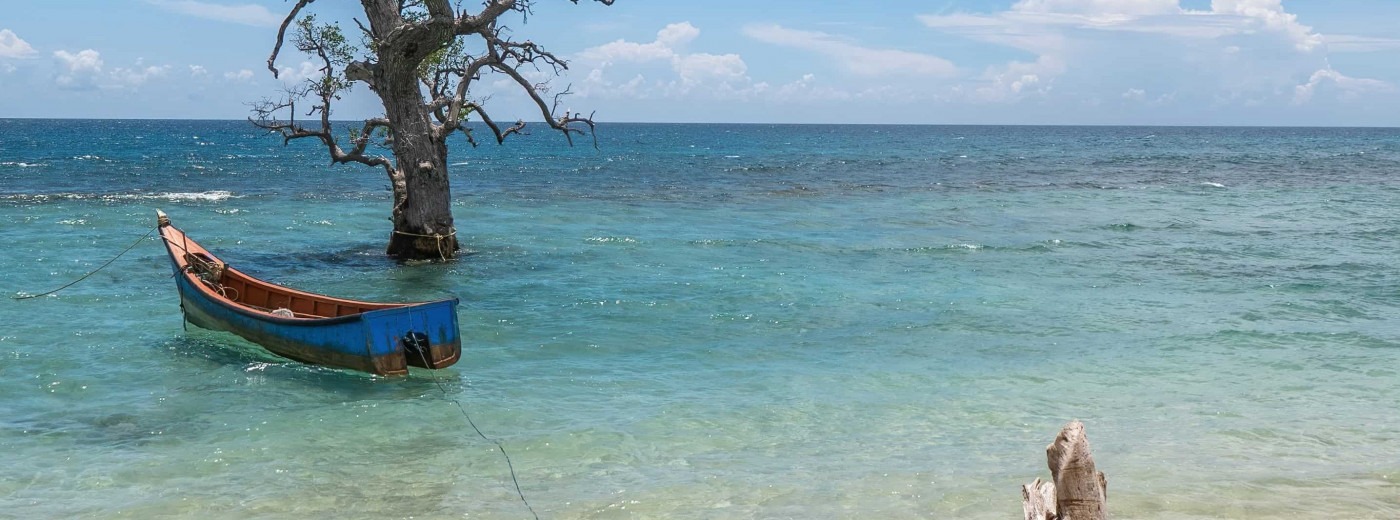Tuvalu.tv : the digital fate of small island countries in the hands of climate change
As climate change looms ahead, global inaction has given rise to some unsettling and sorrowful realities. The responsibilities of countries emitting the highest levels of greenhouse gases, along with the liabilities associated with the concept of loss and damage, have long been ignored at the expense of countries that are under the highest level of threat from natural phenomena occurring across the globe due to climate change. Amongst these countries, small island states such as Tuvalu in the Pacific Ocean are particularly susceptible to geographical disappearance. As sea levels rise at an alarming rate, their territories are engulfed, along with their culture, history, and communities.
Tuvalu is a microstate of a mere 26 square kilometres and populated by around 12,000 inhabitants, situated in Polynesia, in the Pacific Ocean. Its territory is made up of atolls, thin strips of land made of coral surrounding a body of water in the middle. However, the land itself stands a mere 2 metres above sea level. Therefore, small island states such as Tuvalu, but also Kiribati and Vanuatu, are at severe risk of submerging as sea levels rise at an alarming 0.14 inches per year and temperatures are set to surpass the 1.5°C target set at the Paris Agreement in 2015.
Small island states such as Tuvalu, but also Kiribati and Vanuatu, are at severe risk of submerging
At the COP26 in Glasgow in 2021, Tuvalu made headlines as its Foreign Minister Simon Kofe, in a video recording, gave a speech knee-deep in water surrounding his home islands, representing an entire nation sinking in desperation. As worries grow of Tuvalu slipping under the surface of the ocean by the end of the century, there have been talks of remodelling the country into a digitized version of itself not only to maintain its legal status as a sovereign state but also to preserve and memorialise its culture for the years to come. The project, currently accessible at Tuvalu.tv, will act as an archive, storing elements of the country’s culture, its language, historical documents, photographic albums of families, cultural practices, traditional songs etc. At the COP27, Kofe reminded the international community of its passivity when it came to climate action, and that Pacific islands are now having to take matters into their own hands: “Our digital nation will provide an online presence that will replace our physical presence and allow us to continue to function as a state”.
Dr Eselealofa Apinelu, former attorney general for Tuvalu, confessed at the State of the Pacific Conference (SOTP) 2022 that a virtual version of the island state is the only remaining option to provide future generations of Tuvaluans with “something they can hold on to”, and, heartbreakingly, that “it needs to be stored somewhere that there was a country called Tuvalu”, as she foresees the increasingly plausible worst case scenario for the country.
“Our digital nation will provide an online presence that will replace our physical presence and allow us to continue to function as a state”
–Simon Kofe, Foreign Minister of Tuvalu, 2021
But the concept of digital nations begs the question: whether a nation can remain a nation without its population? As plans for a digital Tuvalu are discussed, the status of its population remains hanging in the air. Living conditions are deteriorating; tides are getting higher, thus eroding the coastline; the marine ecosystem is disrupted as water warms and coral reefs die, threatening the country’s fish stocks and thus pushing its inhabitants to leave the islands. As climate refugees currently aren’t recognized under the legal definition of a refugee in the 1951 Refugee Convention, the fate and status of its people is becoming increasingly precarious. Displacement is becoming a dire reality, and countries such as Australia and New Zealand, which is already currently home to around 4,000 Tuvaluans, will be pressured to accept new influxes of populations seeking resettlement from sinking Pacific islands which could follow the same trajectory as Tuvalu.
The concept of digital nations is thus increasingly becoming a realistic and plausible answer to these difficult questions
Additionally, will climate refugees be given citizenship from the country into which they are forced to integrate, or will a new and complex legal, political “country within a country” system be conceived? Who will be held responsible for the disappearance of these states, the smallest contributors to climate change, and how? As desperation continues to grow over the current climatic circumstances, the concept of digital nations is thus increasingly becoming a realistic and plausible answer to these difficult questions, before small island states such as Tuvalu, and eventually other low-lying countries such as the Netherlands (with 26% already underwater), slowly slip under the surface of the oceans.

Comments